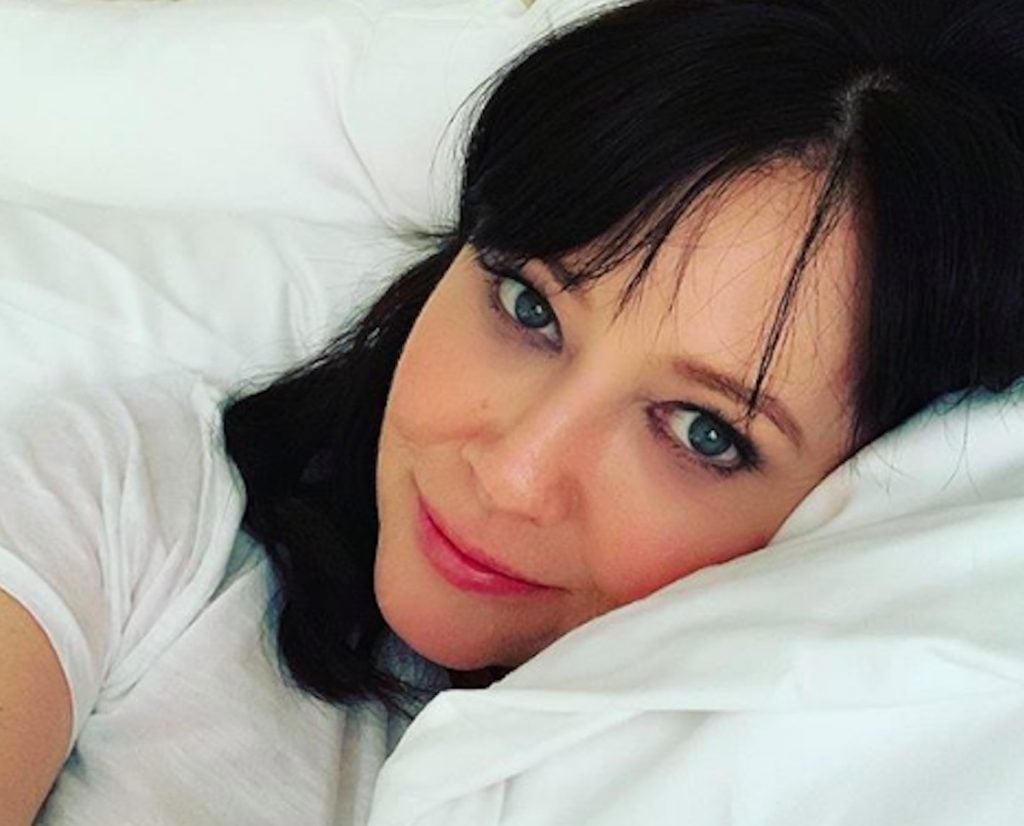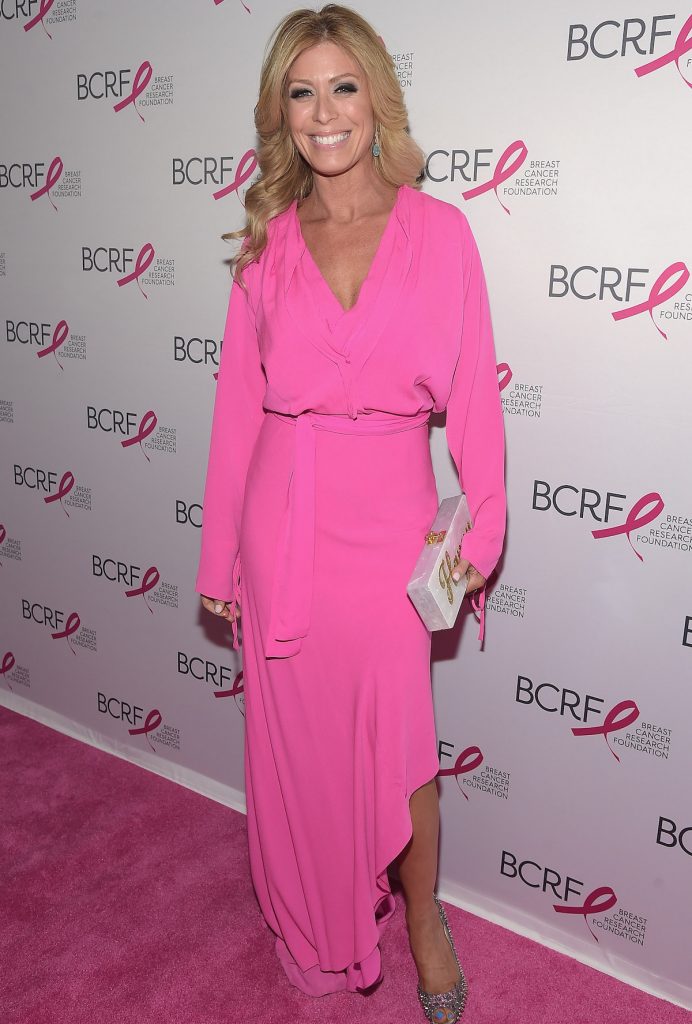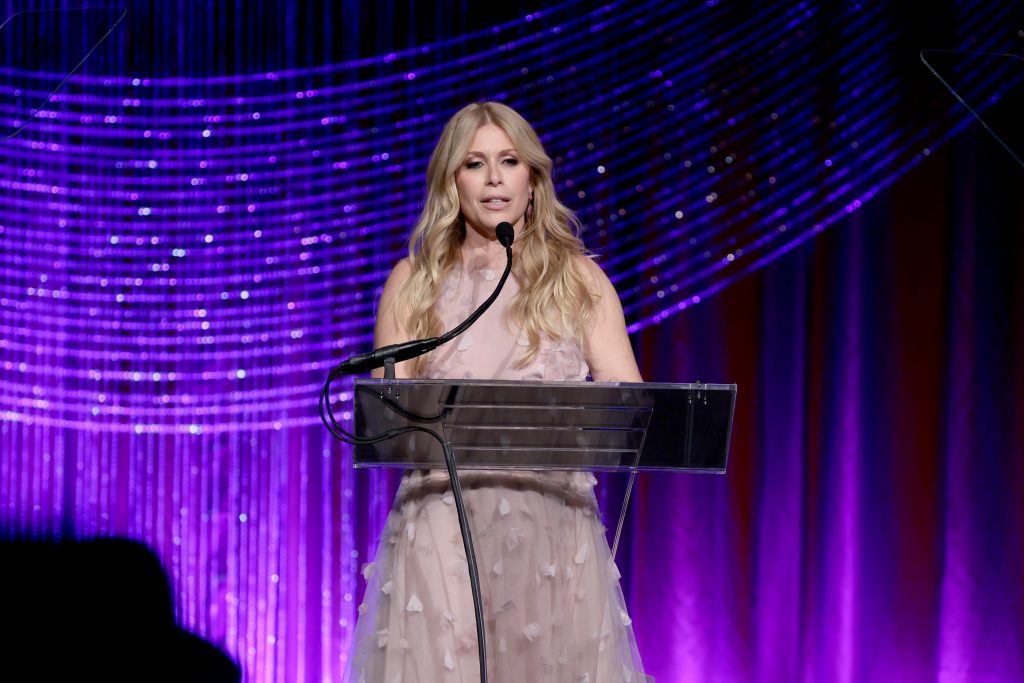The Importance of Genetic Testing
- TODAY contributor and lifestyle expert Jill Martin, 48, announced a “very emotional” guest-hosting spot on beloved late actress Shannen Doherty’s Let’s Be Clear podcast, continuing the legacy of the Beverly Hills, 90210 star’s breast cancer advocacy mission following her death in July.
- Martin, who was diagnosed with breast cancer last year and is now cancer-free, learned she had an aggressive form of the disease shortly after undergoing genetic testing. She underwent chemotherapy, multiple surgeries to remove both of her breasts, her ovaries, fallopian tubes and breast reconstruction. Martin remains on two chemotherapy pills to prevent cancer recurrence.
- The U.S. Preventive Services Task Force recommends women at average breast cancer risk begin screening for breast cancer at age 40. Women with the BRCA gene mutation, who have a family history of cancer or have dense breasts, are at higher risk and should talk with their doctor about when to screen may be younger than 40.
- Genetic tests can be as simple as a simple saliva swab or blood sample. The results help your care team determine if you have a specific mutation that puts you at higher risk for cancer. The results help doctors tailor your treatment and are helpful for breast cancer patients.
- Germline genetic testing for inherited predisposition for breast (and ovarian) cancer can include just BRCA1 and BRCA2 testing (gene mutations that elevate cancer risk) or a more comprehensive gene panel that might include 15-25 genes.
Doherty died on July 13 at age 53 after a remarkable four-year battle with metastatic breast cancer after a primary diagnosis in 2010. Martin, who has had a challenging journey with breast cancer this past year, has become an active voice in urging the importance of genetic testing and said she hopes she made Doherty “proud.”
Read More
View this post on Instagram
“As many of you know, she died July 13, 2024 of cancer. Her team and friends want to continue the conversation as they know Shannen would have wanted that. I’ll post airdate soon. Very emotional- I hope I made her proud. @theshando thank you @sloaney_77 for helping me spread the word about early genetic testing. Love you.”
Fans jumped in to comfort and support Martin in her efforts. “There are no words to convey to you how much you mean to all of us that you have been sharing every moment of your journey and now this,” one person wrote. “Shannon was a warrior and well loved. You documenting everything for us is a gift and helps so many thank you.”

“You are incredible Jill. Thank you for all you do,” wrote another, while a third commented on how “badass” Shannen Doherty was and also stated how wonderful Martin is to continue her mission.
How Genetic Testing Led to Jill Martin’s Diagnosis: ‘Don’t Know If I Would Be Here’
Martin was diagnosed with stage 2 breast cancer last year.
Before learning of her diagnosis, Martin had done genetic testing check if she had any gene mutations — specifically the BRCA gene mutation, which can increase your chance of developing breast and/or ovarian cancer — which wound up being potentially life-saving for her.
Martin was then diagnosed with aggressive breast cancer following a routine MRI she needed prior to her preventive mastectomy, as she had planned to remove her breast tissue to stay ahead of a potential diagnosis, which is becoming more and more common as women are becoming more proactive with their health.
RELATED: What you need to know about the BRCA2 gene
In a recent interview with SurvivorNet, Martin talked about powering through her strenuous journey, stressing the overall importance of hope, support, and being open and honest about your mental health through it all.
“I am now a proud breast cancer survivor, and that’s really a title I am so super proud of,” Martin shared. “It’s a club that I never wanted to be a part of, but now that I am a part of it, it is my most valuable title and one I’ve worked the hardest for.”

She underwent chemotherapy, multiple surgeries to remove both of her breasts, her ovaries, fallopian tubes and breast reconstruction. Martin remains on two chemotherapy pills to prevent cancer recurrence.
“My surgeon told me this, it [a cancer battle] puts a magnifying glass on everything. And so I think any kind of trauma does,” the NBC personality continued. “And so I think you really learn, learn who belongs in your life, who doesn’t, what belongs in your life, and you act accordingly. And I think there’s a reason that people are called warriors. I never understood that word until I became one. And I truly am one now, and I am one now because I fought for it.”
The 12-time Emmy Award winner and New York Times best-selling author also noted that everyone’s journey with breast cancer is “very unique.”
The disease runs in her family and her beloved grandmother Shirley passed away from breast cancer. Her mom also battled the disease.

“I always was aware and I was always on top of it. I was one of those people that knowledge is power. So I wasn’t afraid to go get the test, although every time I went in for my mammogram, which is the best test that we have, but no test is perfect.”
Martin said she had been up on her mammogram, but had never tested for the BRCA gene, as her mother tested and she was negative, “and breast cancer doesn’t run on my father’s side,” she said.
A BRCA2 Gene Mutation
However, she learned soon after that she had the BRCA2 gene mutation. Knowing her higher risk, Martin made the decision to do a preventative surgery.
WATCH: Understanding the BRCA Gene Mutation
“Had I not had that genetic test and found out that I had the bar mutation from my father’s side, so from my father’s side is the mutation. I don’t know if I would be here today to tell this story,” she said. “So my mission and why I feel like I was put on this earth is to educate, advocate, and to make sure no other family has to go through this unnecessarily.”
“I was born with the BRCA mutation, so had I known this, I would’ve done the preventive surgery ahead of time,” she noted, adding, “I wouldn’t have had to go through six surgeries, aggressive chemotherapy that turned my life upside down. Radiation. I’m on two chemo safety net pills, which are my best friends. My journey could have been avoided.”
Learning More About Breast Cancer Risk Genetic Testing
Genetic testing it can be as simple as a simple saliva swab or blood sample. The results help your care team determine if you have a specific mutation that puts you at higher risk for cancer. Additionally, genetic testing aids doctors in tailoring your specific treatment, therefore very helpful for breast cancer patients.
It’s important to point out that the BRCA1 and BRCA2 gene mutations, are among the most important genes to look for in breast cancer.
How Testing For BRCA In Breast Cancer Works
Together, they are responsible for about half of all hereditary breast cancers. These genes prevent cells from dividing haphazardly and uncontrollably in a person without mutations. Mutations prevent these genes from doing their job and can allow unchecked growth of breast, ovarian, and other tissues.
According to the National Cancer Institute, about “13% of women” in the general population will develop breast cancer sometime during their lives. By contrast, 55% to 72% of women who inherit a harmful BRCA1 or BRACA2 variant will develop breast cancer by 70 to 80 years of age.
The Importance of Breast Cancer Screenings
Screening for breast cancer is normally done through a mammogram, which looks for lumps in the breast tissue and signs of cancer. While there is some disagreement about the exact age a woman should start getting mammograms, doctors generally agree it should happen in their 40s.
The American Cancer Society (ACS) suggests women should begin annual mammogram screenings for breast cancer at age 45 if they are at average risk for breast cancer.
WATCH: Mammograms are still the best tool for detecting breast cancer.
The ACS also advises:
- Women aged 40-44 have the option to start screening with a mammogram every year
- Women aged 55 and older can switch to a mammogram every other year
- Women aged 55 and older could also choose to continue yearly mammograms
For screening purposes, a woman is considered to be at average risk if she doesn’t have a personal history of breast cancer, a strong family history of breast cancer, a genetic mutation known to increase risk of breast cancer such as a BRCA gene mutation or a medical history including chest radiation therapy before the age of 30.
Experiencing menstruation at an early age (before 12) or having dense breasts can also put you into a high-risk category. If you are at a higher risk for developing breast cancer, you should begin screening earlier.
Don’t delay speaking with your doctor to make sure you are staying on top of your breast health.
Contributing: SurvivorNet Staff
Learn more about SurvivorNet's rigorous medical review process.

